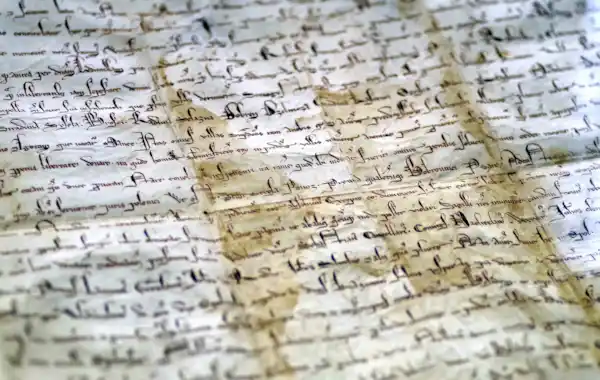01 October 2023
|
Mike Maskrey shares his top tips on medieval genealogy research and looks at the types of records available for this period.
How can we begin to trace our medieval ancestors? What records exist before the parish registers?
To find out more about your family’s history, you must delve into the ancient documents of your town or city. I will use my home city of Nottingham as an example, since I have used many of the ancient records of the city in the search for my own ancestors.
3 important points about medieval records
The first point to remember about the really old records of a city/town/village is that:
1. They are likely to be written on rolls of parchment (hence the term ‘Court Rolls’ and the like)
2. They are likely to be illegible compared with modern records with letters that, for the most part will be unrecognisable
3. They are likely to be written in Latin.
More than any other point, it is this last one, mentioning the ‘L’ word that is likely to have any family historian running for the hills! Latin is at best a difficult language to master and at times it is contradictory beyond belief!
This aside, there are ways around the problem, and simple programmes that family historians can use to give a half decent Latin translation.
Types of medieval record
So, what kind of records can we expect to find? Well, this really depends on the area of the UK the ancestor you are researching lived.
Again, I will use Nottingham and the surrounding districts as an example:
- Nottingham Borough Records – 8 volumes from 1155 to 1835. These are most probably the most informative documents about day-to-day life in the medieval town.
- Nottingham Borough Court Rolls – 1303 to 1475
- Burgess Pleas
- Foreign Pleas
- Jeyes Derbyshire Charters
Nationally:
- A survey of medieval Winchester
- Canterbury under the Angevin kings
- Early Assize Rolls for the county of Northumberland
- Publications of the Surtees Society
In all honesty, there are far too many documents to list
here and these really have only scratched the surface. It’s well worth getting in touch with your local county archives who will let you know which documents are available, and don’t forget the UK National Archives.
Originally published February 2023. Reviewed October 2023.
About the author
Mike Maskrey writes: ‘I began researching the Maskrey family about 30 years ago because I wanted to know more about my unusual surname. Now I have over 3,000 records! I’ve not met a Maskery/ Maskrey I’m not related to albeit distantly and I’ve connected with so many people! So many friends! That’s what genealogy is all about.’








